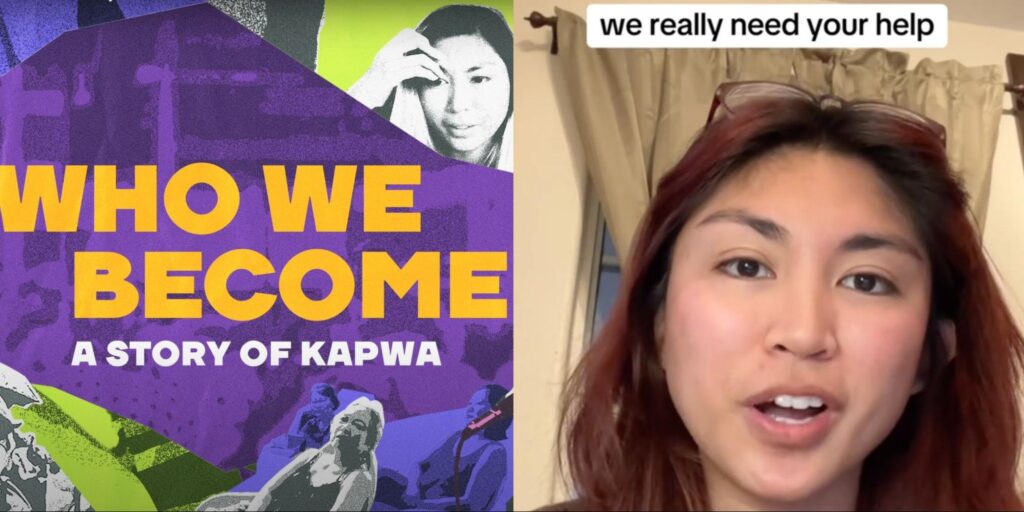Why you should add Fil-Am docu ‘Who We Become’ to your watch list

A journey of self-discovery and love for family, ‘Who We Become’ is a timely film Asian-Americans can relate to | Photos from Array’s “Who We Become” Array/Youtube and @moni.mov/TikTok
The past few years have been difficult to navigate through—possibly for everyone—from the wrath of the COVID-19 pandemic to longer-existing issues such as the Black Lives Matter movement and the anti-Asian hate crimes.
Grappling with these issues is already challenging in itself but even more so with the presence of personal struggles.
These include battling and getting through generational trauma and living with family members that don’t align with your principles while dealing with mental health baggage.
The lack of Filipino-American representation
Apart from that, another issue Fil-Ams have been experiencing through the years is the lack of representation, not only in the media but generally.
Case in point: Despite Filipinos making up the fourth largest immigrant group in the US, there is still a glaring underrepresentation of Fil-Ams in various aspects: politics, business, technology, and culture.
This is why in recent years, Fil-Am creatives have made strides in an attempt to bridge this gap. For instance, Gio Espiritu’s award-harvesting Fil-Am satirical film “Ally 3000” shows what it’s like to be a person of color in the tech industry.
Adding to this tradition is PJ Raval with the self-documented film “Who We Become.” It follows the story of three Fil-Am women battling through the challenges of this changing world, all while discovering new and unexpected connections with their families and more importantly, themselves and who they become, in the process.
View this post on Instagram
However, as much as these, and many more Fil-Am films attempt to showcase more representation, not that many people—including Filipinos— know about them.
A call for “bayanihan” for “Who We Become”
Monica Silverio, one of the protagonists, also took to TikTok to call for help from the Filipino communities in the USA, Canada, New Zealand, Ireland, and the United Kingdom where the documentary has been streaming to get the film’s views up on its release date and opening weekend and show the streaming platform how important the film is.
“I personally haven’t seen a lot of films or representation like this whether in theaters or on streaming, and I genuinely think that everyone will resonate with this film in some way,” Silverio says. “This is why we want to show Netflix and just the media in general, that this is the kind of film and representation that we wanna see more of.”
Despite the film’s premiere on Netflix on Dec. 1, the documentary was released alongside a couple of DC films and was seen at the very bottom of the list. “Please help us show Netflix that this film is important. Help us show them that we don’t need more DC movies, we need more representation.”
@moni.mov Interact with this, share it, repost it and help us tell Netflix we don’t need more DC movies— we need representation!! #film #movie #movietok #moviesuggestions #netflixrecommendation #filipino #filam #greenscreenvideo
The film is produced by “Lingua Franca’s” Cecilia R. Mejia together with co-producers Erwin Falcon and Samantha Renshi Skinner joined by executive producer Theresa Navarro.
Watch the trailer here:


